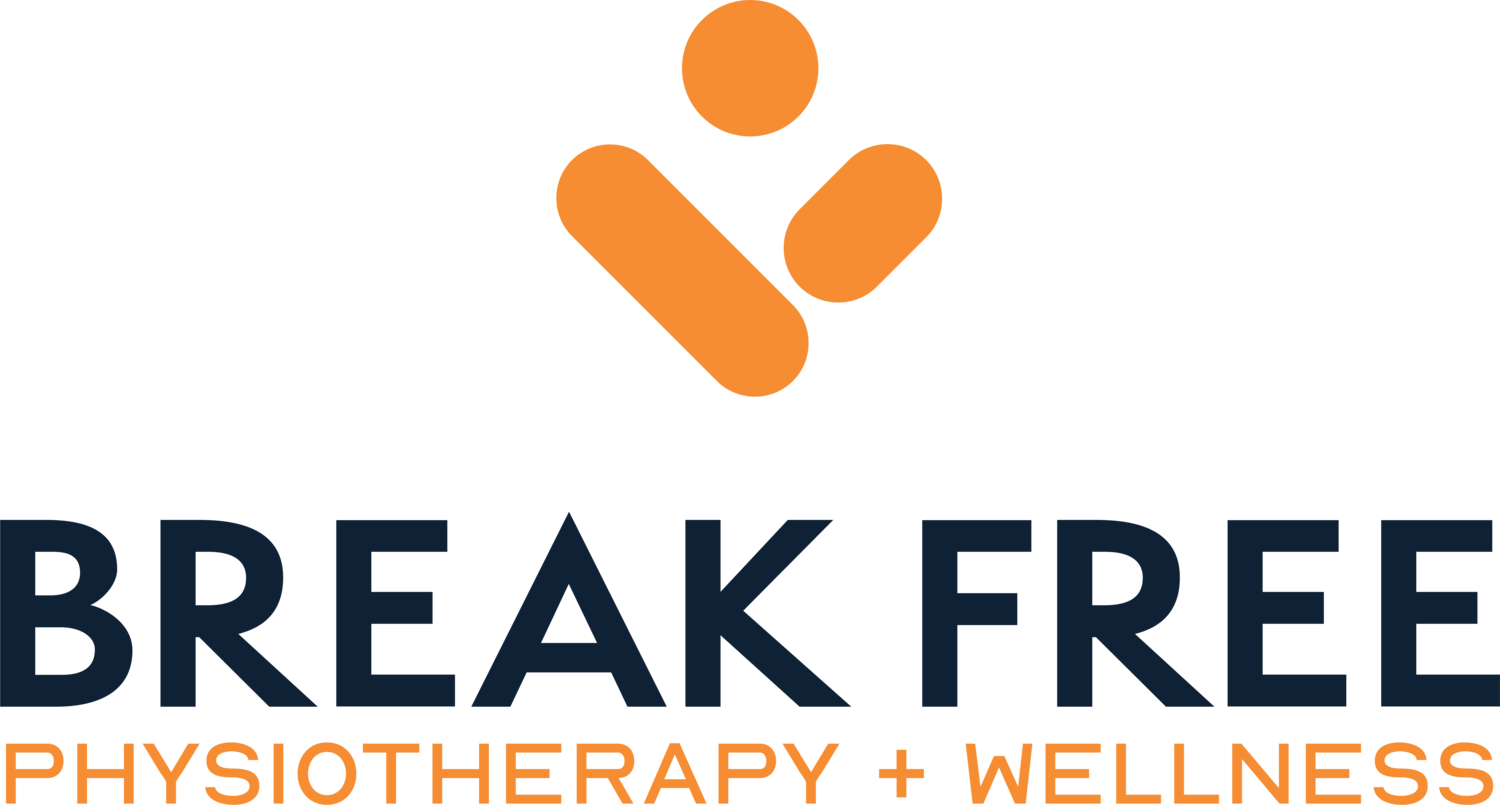PHYSIOTHERAPY
Physiotherapy is a primary care health profession that emphasizes improving your quality of life. It is centered around movement sciences and seeks to enhance or restore function of multiple body systems. Our physiotherapists are committed to health, lifestyle and quality of life and provide a holistic approach.
A physiotherapist will take a detailed history and complete special tests and measures, such as range of motion and strength, to analyze the findings and establish a diagnosis. By using clinical reasoning, the physiotherapist will create a treatment program based on your health status and the findings of the assessment. We treat recent and long standing injuries in children to older adults.
Physiotherapists that will help you understand your injury
Our physiotherapists treat a variety of conditions including, but not limited to, those outlined below:
Low back pain
Chronic neck pain
Whiplash
Rotator cuff injuries
Frozen shoulder (adhesive capsulitis)
Sprains and strains
Tendon injuries (tennis elbow, patellar tendinopathy)
Hand and wrist injuries (carpal tunnel)
Foot and ankle injuries (Achilles tendinopathy)
Post-surgery and post-fracture rehabilitation
Vertigo (i.e. BPPV) and dizziness
Temporo-mandibular joint (TMJ) dysfunction
More Conditions Treated +
Here is a more complete, but still not exhaustive list of conditions treated:
Adolescent Back Pain
Ankylosing Spondylitis
Tailbone PainChronic Low Back Pain
Degenerative Disc Disease
Disc Herniation
Facet Joint Syndrome
Low Back Pain
Lower Crossed Syndrome
Lumbar Compression Fracture
Lumbar Discogenic Pain
Lumbar Radiculopathy
Lumbar Spinal Stenosis
Lumbar Spine Fracture
Lumbar Spondylosis
Lumbar Strain
Piriformis Syndrome
Sciatica
Spondylolisthesis
Spondylolysis
Low Back Pain In Pregnancy
Cervical:
Acromioclavicular Joint Disorders
Torticollis
Cervical Instability
Cervical Myelopathy
Cervical Osteoarthritis
Cervical Radiculopathy
Cervical Rib
Cervical Spondylosis
Cervical Stenosis
Cervicogenic Headache
Chronic Neck Pain
Forward Head Posture
Mechanical Neck Pain
Sternoclavicular Joint Disorders
Sternocleidomastoid Syndrome
Text Neck
Upper-Crossed Syndrome
Whiplash Associated Disorders
Thoracic:
Costochondritis
Intercostal Muscle Strain
Sternal Fracture
Thoracic Back Pain
Thoracic Disc Syndrome
Thoracic Hyperkyphosis
Thoracic Radiculopathy
Thoracic Spine Fracture
Acromioclavicular Arthritis
Shoulder Instability
Calcific Tendinopathy of the Shoulder
Chronic Rotator Cuff Tendinopathy
Frozen Shoulder
Impingement of the Shoulder
Rotator Cuff Tears
Rotator Cuff Tendinopathy
Rupture Long Head Biceps
Shoulder Bursitis
Shoulder Dislocation
Shoulder Osteoarthritis
Shoulder Subluxation
Supraspinatus Tear
Supraspinatus Tendinopathy
Elbow:
Compartment Syndrome of the Forearm
Elbow Ligamentous Injuries
Elbow Osteoarthritis
Lateral Epicondylitis
Olecranon Bursitis
Olecranon Fracture
Elbow Dislocation
Posterior Interosseous Nerve Syndrome
Radial Tunnel Syndrome
Ulnar Nerve Entrapment
Supracondylar Humeral Fracture
Triceps Tendonitis
Bicep Tendinitis
Wrist:
Carpal Tunnel Syndrome
Colles Fracture
De Quervain's Tenosynovitis
Distal Radial Fractures
Scaphoid Fracture
Triangular Fibrocartilage Complex Injuries
Wrist Sprain
Hip:
Hamstring Strain
Hamstring Tear
Gluteal Tendinopathy
Hip Dysplasia
Hip Osteoarthritis
Hip Bursitis
Sacroiliac:
Sacroilitis
Pregnancy Sacroiliac Dysfunction
Knee Osteoarthritis
Anterior Cruciate Ligament Injury
Posterior Cruciate Ligament Injury
Lateral Collateral Ligament Injury of the Knee
Medial Collateral Ligament Injury of the Knee
Medial Tibial Stress Syndrome
Osgood-Schlatter Disease
Osteochondritis Dissecans of the Knee
Patellar dislocation
Patellar Fractures
Patellar Tendinopathy
Knee Osteoarthritis
Patellofemoral Pain Syndrome
Quadriceps Muscle Contusion
Quadriceps Muscle Strain
Quadriceps Tendon Tear
Tibial Plateau Fractures
Ankle:
Achilles Rupture
Achilles Tendinopathy
Ankle and Foot Fractures
Ankle Impingement
Ankle Osteoarthritis
Ankle Sprain
Avulsion Fractures of the Ankle
Plantar Fasciitis
Chronic Ankle Instability
Heel Fat Pad Syndrome
Ligament Injury of the Ankle
Peroneal tendon subluxation
Posterior Tibial Tendinitis
Retrocalcaneal Bursitis
Syndesmotic Ankle Sprains
Tarsal Tunnel Syndrome
Foot:
Plantar Heel Pain
Calcaneal Fractures
Diabetic Neuropathy
Foot Pain
Toe Walking
Metatarsalgia
Morton's Neuroma
Plantar Fasciitis
Retrocalcaneal Bursitis
Vestibular:
Balance Issues
Vertigo
Benign Positional Paroxysmal Vertigo (BPPV)
The initial assessment will be 60 minutes. All physiotherapy care at Break Free Physiotherapy and Wellness is one-on-one 30-60 minute follow-up treatment sessions, with the most common duration being 30 minutes. We offer both in-person and virtual appointments.
Treatment may include an individualized program, the use of modalities such as acupuncture or manual therapy, and education. Understanding your injury is the cornerstone of an effective self-management program. It all depends on what is right for you!
Learn more…


